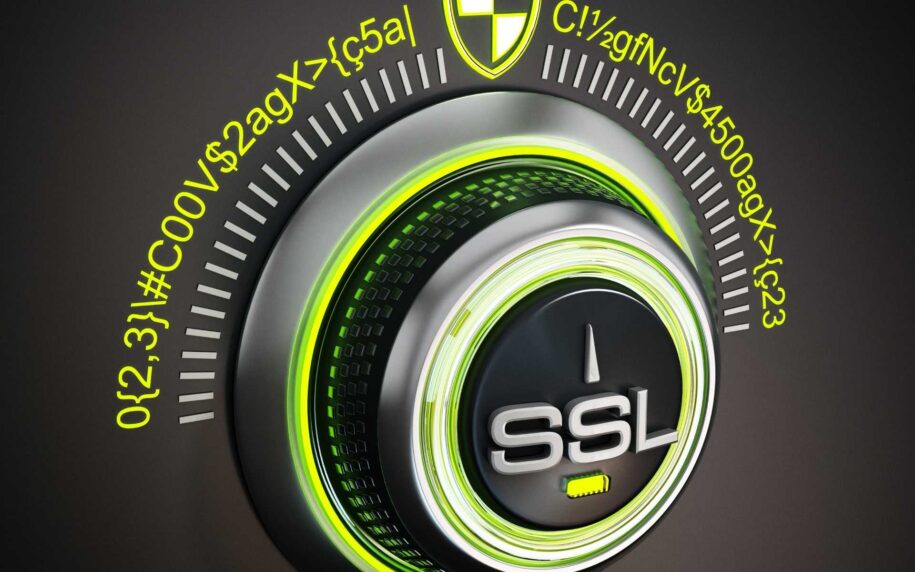Does Your Website Need An SSL Certificate
You’ve found an ideal website domain domain for your site. Your list of products is growing and your site looks fantastic. Then, bam. An email from your chamber of commerce in your area will ask you during breakfast food items if the SSL certificate can secure your website.
You’ve heard that the Chrome browser displays the “Not secure” warning on the right side of the site within the address bar, if the website isn’t secured using an SSL certificate. What exactly do you mean by an SSL certificate? Do I really need to have an SSL certificate? Do I need to understand what SSL operates?
Do not be worried. After reading this article and you’ve read this, you’re not going to choke on a sausage link , or ask someone to share the muffins in order to run a quick search before deciding.

What exactly is SSL?
First of all, what exactly is SSL precisely? “SSL” is an abbreviation to mean Secure Sockets Layer. In simple terms, it’s the way web admins communicate with their customers who can browse, buy goods or services, and also share data securely with you online.
Using an SSL secure connection for such things without going into too much detail.
Imagine your SSL certificate like a gigantic windshield that you can use to drive through the information superhighway.
You wouldn’t venture out on your freeway, especially at night in a rural location with nothing between you and the bugs. Similar to it is with an SSL certificate safeguards your website as well as its users from the ravages of digital bugs such as worms, worms, and other evil web-based creatures.
Before dismissing your website because it is “too tiny to make it targeted,” keep in mind that most interceptions happen by computers without the need for a human to decide who’s being targeted.
There is no site too small to be hacked.
Research shows that 50% of cyber-attacks are targeted at small-sized businesses.
A web crawly doesn’t consider how big as well as what your profession is for an income. They’re only interested in one thing, and that’s to discover weaknesses. Once they are found, the hard work starts.
What exactly does an SSL certificate accomplish?
Check out this article if you’ve been curious about what SSL operates.
An SSL certificate establishes an encrypted connection between the visitor’s internet browser and your server.
A secure session is created by the “handshake” procedure that involves a back and forth exchange between the browser and the web server and takes place in the background that is not interrupted by the browsing or shopping experience.
An SSL is a way to secure sensitive information exchanged between two parties.
Is your website require the SSL certification?
As previously mentioned, Google began rolling out Chrome 68 in July 2018 and marked websites with the status of “Not Secure” when it’s not secured with the SSL certificate. This is all aspect of making the internet more safe. However, it’s more essential if you store information or take payments.
Accept payment securely
Are you planning to accept major credit cards on the internet? You’ll probably require an account for merchants, most of which will require the SSL certificate. Certain web hosting companies like GoDaddy and GoDaddy have terms of service that need websites secured by an SSL before they can accept credit cards. In addition, would you wish to put your customers at risk of being able to have their credit card details stolen while they are shopping on your website?
It’s not the best method to get repeat business.
A few online store and shopping cart applications like GoDaddy’s Online Store come with an integrated secure payment system. In these situations, an outside company handles credit card transactions or offers an alternative method to pay online. If this is the situation, then it’s likely that your small business does not require the extra security provided by the SSL on your payment page.
There are many other motives, however, to include an SSL.
Protect password logins
One of the main causes you may consider adding an SSL certificate for your website is if any websites you have are password-protected. This is the case for WordPress and Joomla! or any other database-driven site with login pages for the administrator.
Membership websites with multiple logins also provide more chances for hackers from black hats to target.
Remember, everything that needs to be secured online has to be protected by the protection created by the SSL certificate.
The internet is brimming with bots scouring the web for passwords that are not secure for access to your site. You don’t want to sign onto your website only to discover that your website’s pages have been altered or removed.
Completely secure web form
Many websites do not collect money. Certain websites gather information. They could provide leads to prospective home buyers. Or questionnaires about your client’s employment history. And so on. If you’re collecting primary data like name and address, phone number, and email address, your customers would not wish to leak that information out.
In the absence of an SSL certificate, certain kinds of emails can be detected. Specific codes are more secure than others. Are you willing to bet that your code is vulnerable to hacking?
Most likely Not.
Protecting your forms online with the SSL certificate is an absolute requirement.
It is not a good idea to trade with someone who didn’t take this step. Don’t offer anyone this as an excuse not to deal with you.

